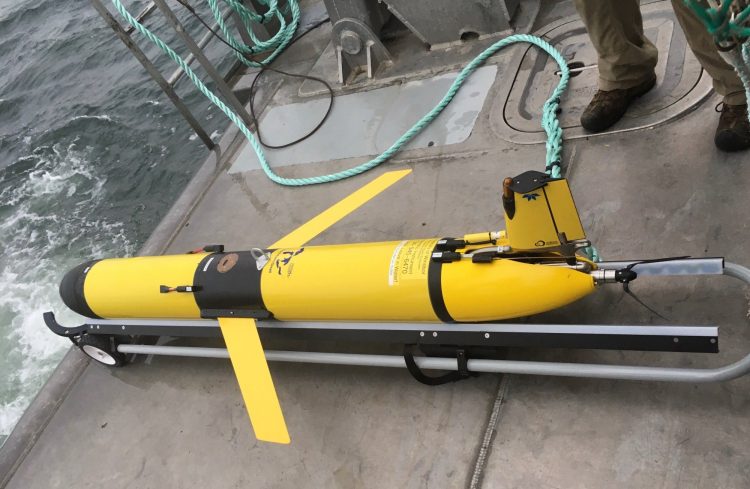By Maggie Xenopoulos, Trent University
This is part of the Smart Project Series—stories published by Smart Great Lakes Initiative (SGLi) partners that explore current or future projects that sum up what it means to be “smart,” as established in the Common Strategy for Smart Great Lakes. The Common Strategy is the key document of the SGLi and will be available for public comment starting August 23, 2021.
Autonomous underwater vehicles (AUVs) are giving researchers a new way to study the Great Lakes. Affixed with a variety of sensors and probes, they provide the opportunity to collect high-resolution, continuous, real-time data over large spatial and temporal scales. In recent years, AUVs, particularly gliders, have become more prevalent in the Great Lakes with several currently available to monitor and collect biotic (e.g., chlorophyll, fish) and abiotic (e.g., dissolved oxygen, temperature, light) parameters. These data are crucial for forecasting and responding to current (e.g., climate change) and future (e.g., Asian carp) threats to the Great Lakes but gliders require specialized knowledge and dedicated resources to function.
With several observatories in the region now using gliders, the opportunity exists for institutions to better coordinate efforts in the Great Lakes through collaboration. The University of Windsor, Trent University, the Real-Time Aquatic Ecosystem Observation Network (RAEON), the Cooperative Institute for Great Lakes Research (CIGLR), the Environmental Protection Agency (EPA), and University of Minnesota Duluth (UMD) have organized themselves to form a Consortium of Great Lakes Gliders. The Consortium provides a framework for collaborative glider operations, including sharing of knowledge, goal setting and mission planning; data processing and analysis; training; deployment and recovery of equipment; and cooperative piloting.

